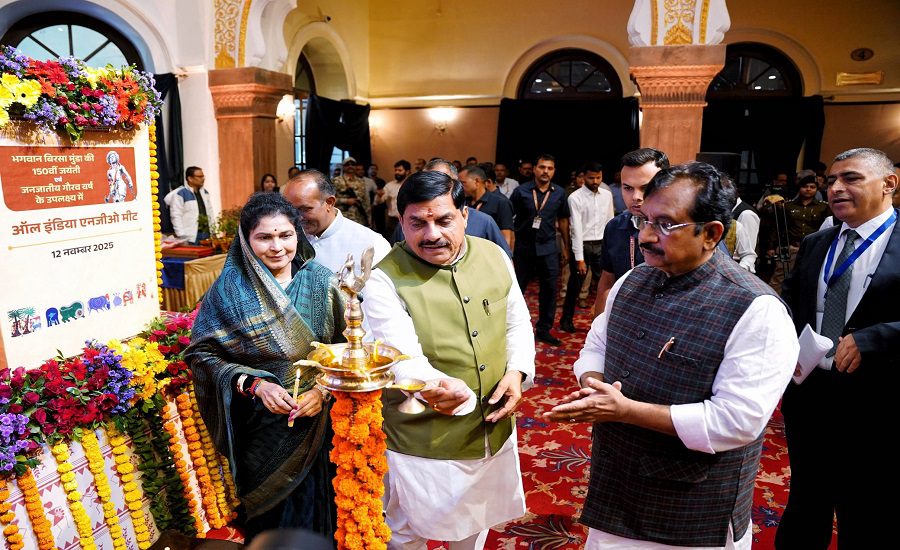Bhopal: Madhya Pradesh Chief Minister Dr. Mohan Yadav emphasized the cultural and social importance of the tribal community during the “Tribal Pride Year – National Conference 2025”. Addressing the gathering virtually at Kushabhau Thackeray International Convention Centre, he said, “Tribal communities are the soul of our culture, and we cherish the memories of our tribal heroes.”
The Chief Minister inaugurated the All India NGO Meet held in honor of Birsa Munda’s 150th birth anniversary and the Tribal Pride Year. The meet saw the participation of NGO representatives from across the country, working toward the welfare of tribal communities.
Tribal Welfare: Education, Culture, and Social Development
CM Dr. Yadav highlighted that Madhya Pradesh is home to 21% of India’s tribal population, making it the state with the highest tribal concentration in the country. Tribal communities, he said, live in harmony with nature, and the state government is committed to their educational, social, economic, and cultural development through various welfare schemes.
He also announced the inclusion of tribal leaders’ biographies in school curricula to ensure the younger generation learns about their contributions. Key initiatives include museums, memorials, and the renaming of important public places in honor of tribal heroes.
Honoring Tribal Leaders and Heritage
The Chief Minister noted that Madhya Pradesh has preserved the legacies of tribal leaders such as Raja Shankar Shah, Kunwar Raghunath Shah, Rani Durgavati, and Tantya Bhil through museums, memorials, and dedicated events. For example:
- Habibganj Railway Station renamed after Rani Kamalapati
- Patalpani Railway Station named after Tantya Bhil
- Tribute Cabinet Meetings held in Jabalpur, Singrampur, and Pachmarhi
CM Dr. Yadav emphasized that such measures ensure the triumphs and sacrifices of tribal leaders reach every citizen.
Role of NGOs in Tribal Development
Highlighting the crucial role of NGOs, the Chief Minister said they act as a bridge between the government and the people, helping implement welfare schemes, promote education, improve health services, and empower tribal communities. NGOs also support initiatives like the Forest Rights Act, livelihood projects, and tribal governance programs.
The one-day national meet featured interactive discussions across four sectors: education, health, livelihood, and governance, providing actionable insights for both state and central governments.
Birsa Munda’s 150th Birth Anniversary and National Initiatives
Dr. Yadav reiterated that the 150th birth anniversary of Birsa Munda will be celebrated with grandeur in Jabalpur and Alirajpur on 15 November 2025, emphasizing the need for collaborative brainstorming to generate impactful tribal welfare strategies.
The Deputy Director General of the Ministry of Tribal Affairs, Anshu Singh, highlighted the central government’s ongoing programs like PM Jan-Man and Dharti Aba Tribal Village Excellence Campaign, which aim to reduce literacy gaps and infant mortality while improving livelihoods.
Tribal Pride: A Legacy and Future Vision
The Chief Minister proudly stated that Madhya Pradesh is a land nurtured by tribal communities, and under Prime Minister Narendra Modi’s leadership, tribal pride and empowerment have been restored. The state government remains committed to working alongside NGOs and other organizations to implement welfare programs, preserve cultural heritage, and strengthen tribal communities across remote areas.
“Tribal welfare is not just a policy; it is our commitment,” Dr. Yadav affirmed, highlighting the importance of inclusive growth and cultural preservation for the future of Madhya Pradesh.



























